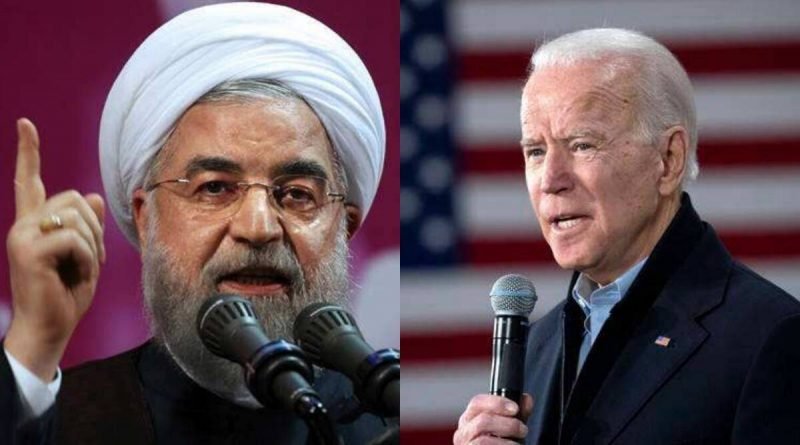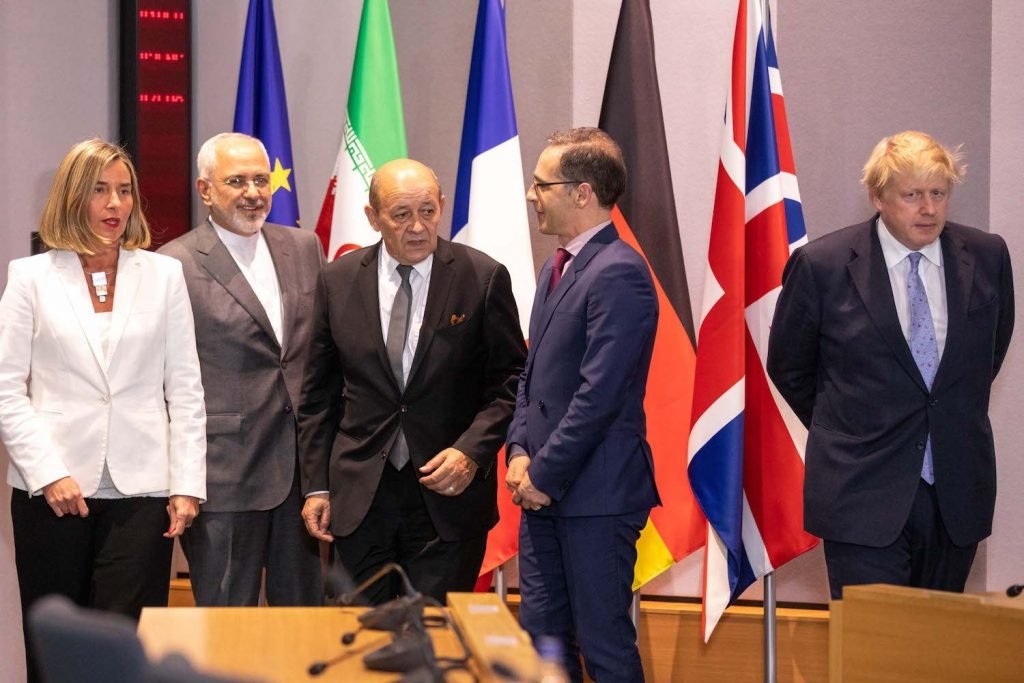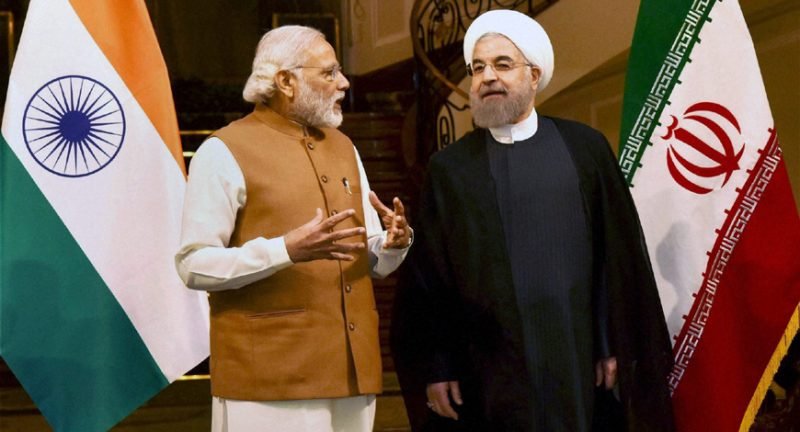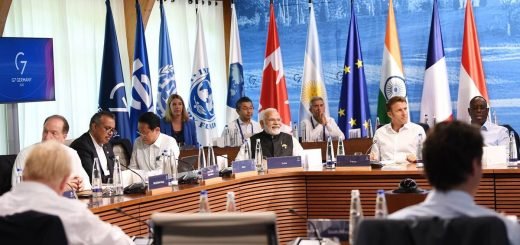Washington’s Decision to Talk to Iran: An Act of Geopolitical Prudence

The news of the US is willing for talk with Iran to revive the Iran Nuclear deal is one of the most significant development for peace and security of the region and the world. The decision surely assumes profound salience in the changing geopolitical landscape in the region and wider world. In the backdrop of Abraham Accord, Al Ula Agreement and ongoing Doha Afghan peace talks, it surely marks the return of diplomacy in international relations and new hope of peace in the war-ravaged and violence-torn West Asia in particular. Irrespective of the modalities and ultimate outcomes this is a positive move with the potential for de-escalation, calming of rivalries and possible peace and security in this strategic region.

Since the Iranian Revolution in 1979, the US withdrawal from Iran nuclear deal and the subsequent ‘Maximum Pressure’ policy has made Iran and the Gulf the vortex of crisis with wider implications not only for the violence-torn region but for the whole world. Thus, the announcement of the Biden administration intends to engage with Iran assumes extreme salience and merits analysis of its imperatives and implications.
The US Secretary of State, Antony Blinken’s talk with the EU-3 counterparts for policy coordination with the declared aim of talking to Iran to stop Iran from developing nuclear weapon signifies the limits of unilateralism and enhanced relevance of multilateralism and diplomacy. Information to Israel for the decision to talk to Tehran gives a sense of wider consideration of the interests of allies in the region. The involvement of European allies not only strengthen the process and credibility but also narrowing the transatlantic chasm in recent years. The move can resuscitate and reinvigorate the shared security based on nuclear non-proliferation and disarmament regime. The involvement of the EU makes the approach broad-based and more pragmatic and a credible diplomatic bridge to cushion the areas of disagreement gradually into an agreeable terrain. The talk of the European Council President, Charles Michel with the Iranian President, Hassan Rouhani is a sign of diplomatic maturity and commitment. The Joint Statement following the US and EU-3 foreign ministers are making the sincerity of the step apparent.
The strategic location of Iran has been an important factor for its regional powerful position and a formidable US ally till the 1979 Revolution. Even today Iran is important for maritime security in the large portion of the Indian Ocean and surely the Gulf. Its historical and cultural linkages and long borders with Afghan make it an important actor and factor for the peace and stability of this war-torn country. Taliban-Doha meetings and Central Asia
Syrian civil war and Iraq and Yemen are other theatres of instability and disorder in the region with tremendous hazards of spill-over and long term geopolitical implications for the US and its interests in the region. Security of its Gulf allies without a normal engagement with Iran is neither pragmatic nor sustainable for long as Iran sits over the entire eastern flank of the Gulf with control over strategic islands and the Strait of Hormuz. Many encounters and seizure of tankers and attacks have clearly manifested the potential hazards.

Interests of European allies are important for the Biden administration for restoring trust and differences over Iran. The transatlantic chasm can be repaired by considering the interests and approach of European allies towards Iran. In that broader framework, there is a deeper anxiousness in the US and among its European allies to engage with Iran and integrate its economy for trade, investment and bring it into the loop of western technology sphere to stem the expansion of China in that country and wider region pushing back western presence and interests.
The limits of ‘Maximum Pressure’
The policy has failed to create the intended anti-regime popular protest. Sanctions also could not succeed in weakening the regime rather impacted the common populace hard. The Covid-19 produced a new situation and the Iranian government justified its limited pandemic response to sanctions which further maligned the US policy and approach in public perception. Besides, the US threatening military build-up in the Gulf shored up support for the government. To add further, the assassination of Qasem Soleimani produced a national outrage. The supposedly covert US support for the killing of Iranian nuclear scientist Mohsen Fakirzadeh has injured the national sentiment and US image in the country. These all have weakened the Reformist component of the domestic politics in Iran and strengthened the Conservative elements
The US exit from JCPOA, 1918 led Iran to resume its ‘Look East’ policy at a more targeted pace and intensity to ensure its security and counterbalance US influence in the region. The Joint naval exercise with China and Russia in 2019 is a developing direct coalition of a challenge to US influence in the region. The new Joint exercise is underway right now with the declared aim of ‘Commercial Maritime Security’. Thus the US policy pushed Iran critically dependent on China and Russia. The potential 25 years ‘Comprehensive Strategic Partnership’ with China is the survival imperative of sanctioned Iran.
The absence of policy revision and recalibration towards Iran and wider West Asia has immense potential of Iran sliding into the geopolitical and strategic sphere of China, a prelude to its eventual influence in the whole region. Thus Iran question now has assumed wider implications for US-China policy, approach towards Russia and its Asia-Pacific policy in the larger framework of a geopolitical contest with China in the emerging world order. The US engagement with Iran by resuming JCPOA with or without new terms and additions is a geopolitical imperative to halt increasing Russian and Chinese influence which has become a critical survival option for Iran.

Implications for India
Iran assumes paramount salience in Indian strategic thinking based on its national security, continental and Indian Ocean maritime security, Afghan policy and strategic connectivity to Central Asia and Eurasia. The halted approach and subdued synergy can be redeemed by the US re-engagement with Iran. The subsequent ease in the Gulf and wider West Asia would help India realise its goals and visions underlying its ‘Look West’ and ‘Extended Neighbourhood’ Policy. The Iran visit of the Indian External Affairs Minister and Defence Minister in September 2020 and the recent visit of the Iranian Defence Minister to New Delhi for the Defence Ministers Meet of Indian Ocean Region and participation in the Aero-Show Bengaluru are the manifestation of the emerging cooperation among these two major Indian Ocean rim countries for their mutual national interests on multiple counts and security of their shared region.
The US re-engagement would further consolidate the Quad strategy for the wider Indo-pacific region and help buttress the US pursuit to deal with Chinese expansion in this strategic region and beyond. Iran was the foremost US ally in the region as part of its “Two Pillar” Policy along with Saudi Arabia and the changing geopolitical syndrome in the region makes it imperative to engage with Iran again. Further delays will push Iran into the Chinese lap and subsequent dovetailing of Gwadar with Chabahar and Bandar-e-Jask result in untenable geopolitical challenge and security implications for US power and position in the region. Thus the US decision to engage Iran at this crucial juncture is surely an act of geopolitical realism and prudence.



















